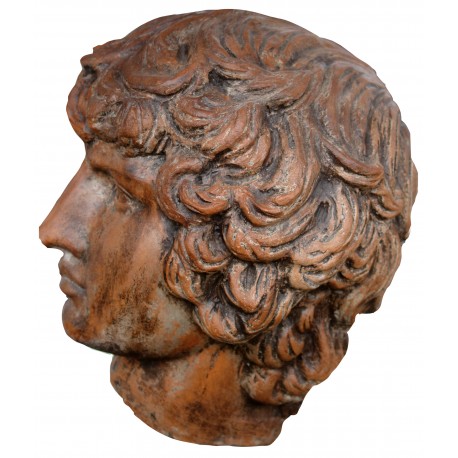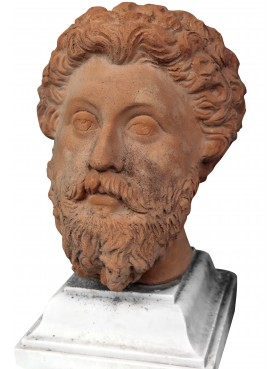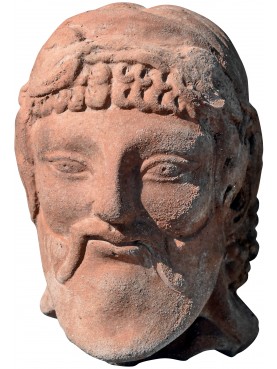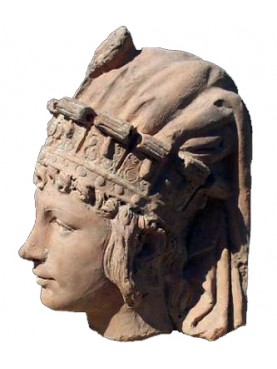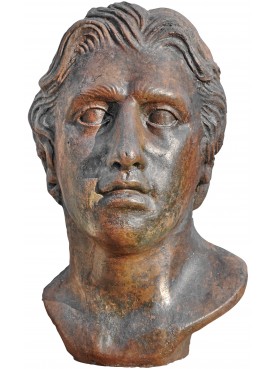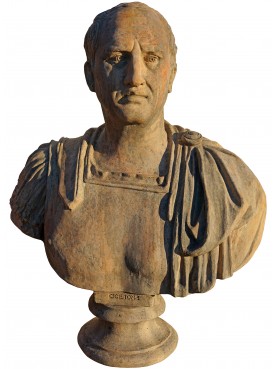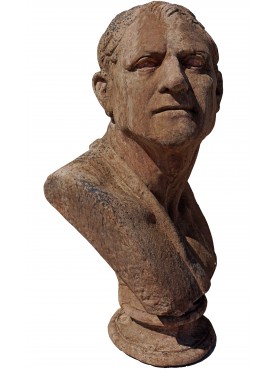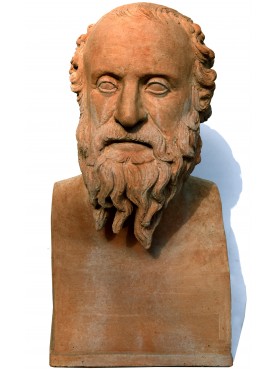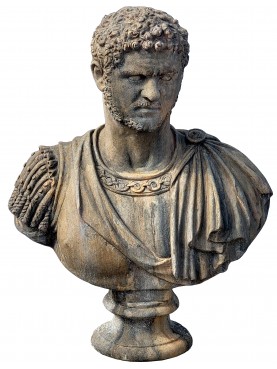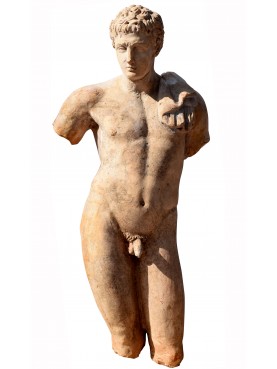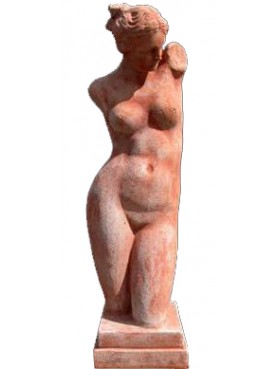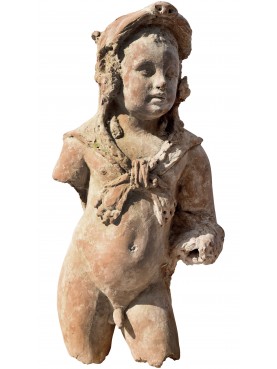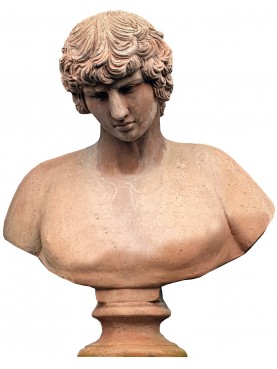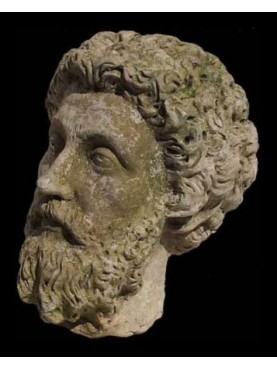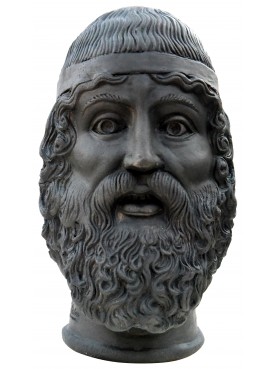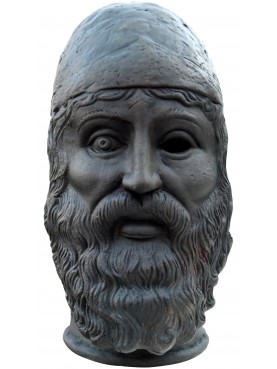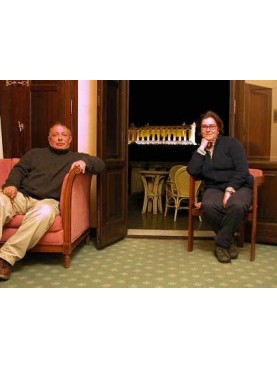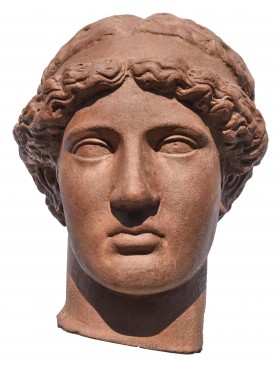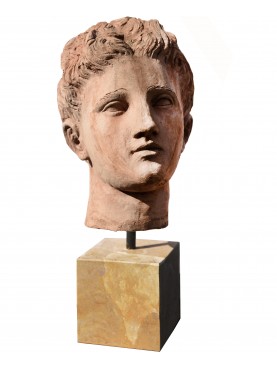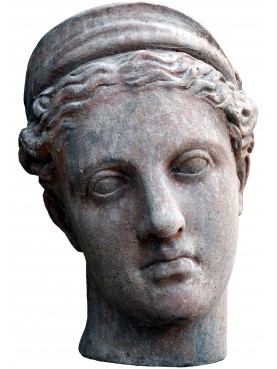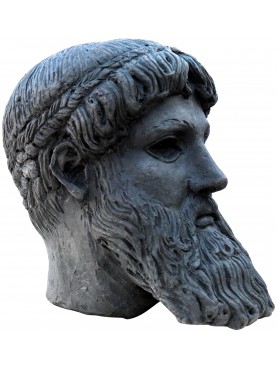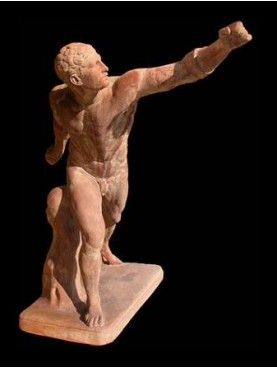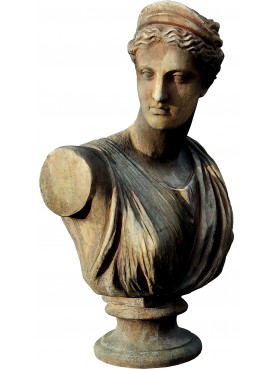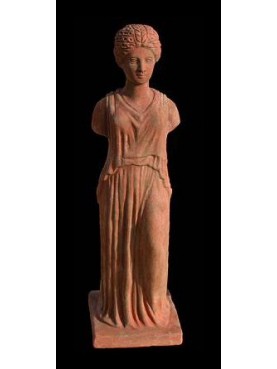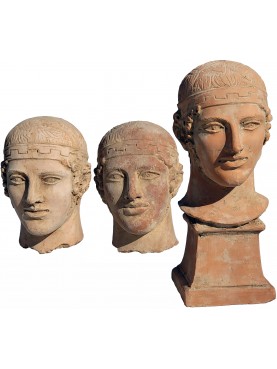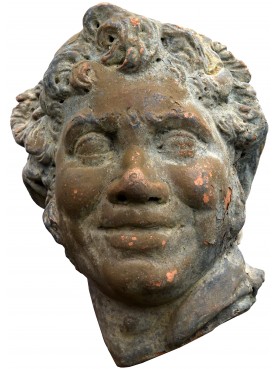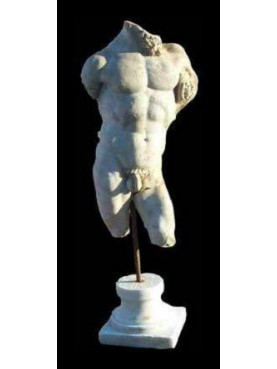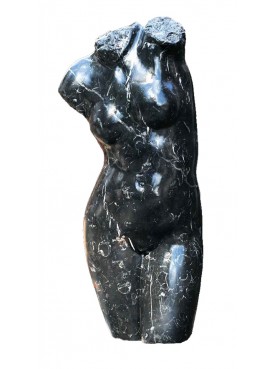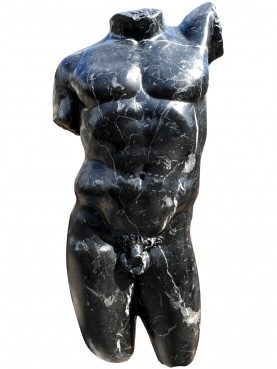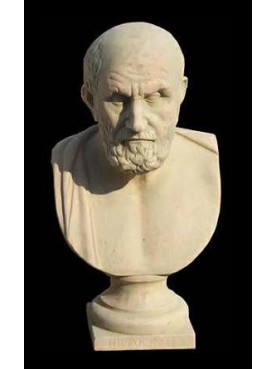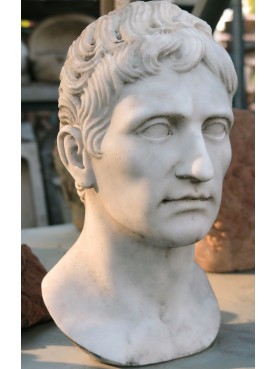Antinoo terracotta head
Antinoo terracotta head
5047
New
Terracotta head .
Antinoo (Bitnia 130 - Alessandria d'Egitto 150 d.C.).
Adrian's favourite.
Our reproduction with terracotta base.
2 Available
Data sheet
| Height | 12.99 in | 33 cm |
| Width | 11.81 in | 30 cm |
| Depth | 11.02 in | 28 cm |
| Weight | 13.23 lbs | 6 Kg |
| Manufacturing | Recuperando srl | |
| Material | Terracotta |
More info
Antinous (also Antinoüs or Antinoös; Ancient Greek: Ἀντίνοος; 27 November, c. 111 – before 30 October 130) was a Bithynian Greek youth and a favourite, or lover, of the Roman emperor Hadrian. He was deified after his death, being worshiped in both the Greek East and Latin West, sometimes as a god (theos) and sometimes merely as a hero (heros).
Little is known of Antinous' life, although it is known that he was born in Claudiopolis (present day Bolu, Turkey), in the Roman province of Bithynia. He likely was introduced to Hadrian in 123, before being taken to Italy for a higher education. He had become the favourite of Hadrian by 128, when he was taken on a tour of the Empire as part of Hadrian's personal retinue. Antinous accompanied Hadrian during his attendance of the annual Eleusinian Mysteries in Athens, and was with him when he killed the Marousian lion in Libya. In October 130, as they were part of a flotilla going along the Nile, Antinous died amid mysterious circumstances. Various suggestions have been put forward for how he died, ranging from an accidental drowning to an intentional human sacrifice.
Following his death, Hadrian deified Antinous and founded an organised cult devoted to his worship that spread throughout the Empire. Hadrian founded the city of Antinopolis close to Antinous's place of death, which became a cultic centre for the worship of Osiris-Antinous. Hadrian also founded games in commemoration of Antinous to take place in both Antinopolis and Athens, with Antinous becoming a symbol of Hadrian's dreams of pan-Hellenism.
Antinous became associated with homosexuality in Western culture, appearing in the work of Oscar Wilde and Fernando Pessoa.

